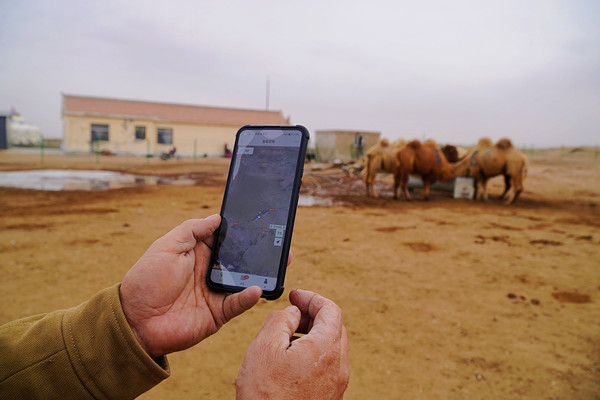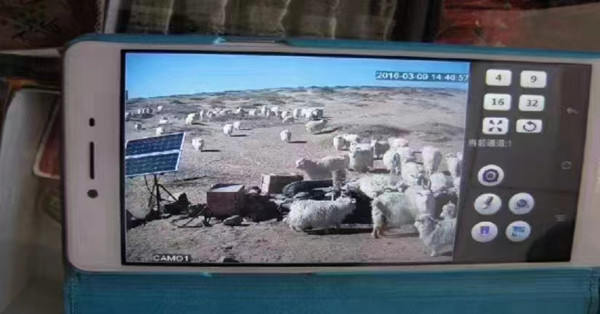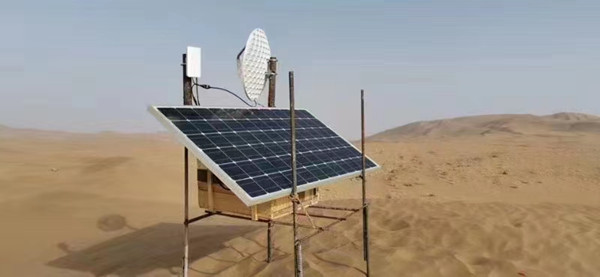Alshaa intelligent agriculture project recognized nationally
- Updated: 2023-02-21

Herdsmen can use their mobile phones to watch the images of the smart drinking water system in real time and manage them remotely. [Photo provided to chinadaily.com.cn]
The Intelligent Management of Ecological Animal Husbandry project in Alshaa Desert Grassland – conducted under the auspices of Alshaa Left Banner in Alshaa League, North China's Inner Mongolia autonomous region – recently received national recognition.
It was successfully selected and recommended as an outstanding case for national intelligent agriculture development in 2022.
The project was one of 74 such cases released by the Information Center of the Ministry of Agriculture and Rural Affairs.
The project has been researched and developed since 2000. Responding to the special landscape characteristics of Alshaa League and the needs of its herdsmen, it has developed technical equipment such as an intelligent grazing system and an intelligent drinking water system.

The intelligent grazing equipment installed for camels helps in positioning, tracking, monitoring and management, as well as realizes remote grazing. [Photo provided to chinadaily.com.cn]
The core system for intelligent grazing applies the internet and satellite positioning technology to the animal husbandry production process.
Using internet technology, the herd location information, movements and other information are connected to the internet through monitoring equipment to realize intelligent identification, positioning, tracking, monitoring and management.
It can realize remote grazing, automatic statistics, a real-time grasp of pasture information, as well as the timely acquisition of unusual and abnormal conditions – and decision-making controls at the same time.
To date, more than 500 herdsmen in Alshaa have used more than 2,000 sets of Beidou positioning equipment and the number of camels managed through intelligent grazing now numbers about 30,000.
According to calculations, compared with the same period in the previous year, camel herders can save more than 50 percent of grazing time and grazing costs of at least 5,000 yuan ($729) per year. The project has been extended to other areas of Inner Mongolia, as well as to Gansu and Qinghai provinces.
Smart drinking water technology uses a network and monitoring camera – as well as induction, automatic detection and remote control technology – to automate the management of electric water extraction.
The technology began to be developed and promoted in farming and pastoral areas in 2015. So far, more than 1,000 smart drinking water devices have been installed for farmers and herdsmen.

The wireless network installed [Photo provided to chinadaily.com.cn]


